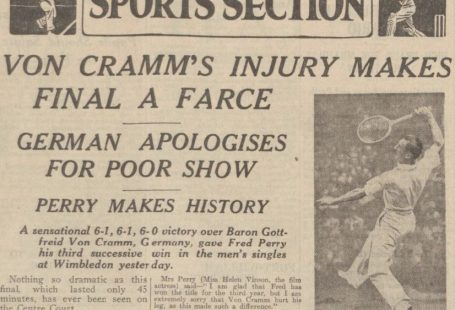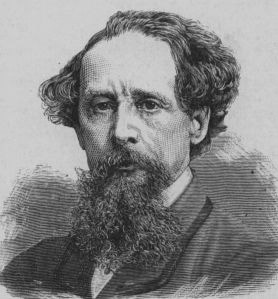
The lovely people at history magazine Bygone Kent got in touch to share the shocking stories they’ve uncovered about Charles Dickens’ life in Higham, Kent.
We’d love to hear about your own discoveries – email [email protected] to tell us about them.
A ‘diabolical attempt’ to overturn the carriage of Charles Dickens while it drove through his home village has been discovered by local historian and journalist Andrew Rootes, editor of Bygone Kent. The incident was uncovered in The British Newspaper Archive while Andrew was researching Higham, the village where Dickens made his home at Gad’s Hill.
Kent man attempted to overturn Charles Dickens’ carriage
The village is about 25 miles from London on the North Kent line and Dickens commonly caught the train from the city to Higham station, which sits at the bottom of a hill about a mile from his home. Although he was a great walker, he was usually met by one of his carriages – as was due to happen on the night of the incident.
This route was the setting for what the Dover Express, reporting on 21 June 1862, described as a ‘Diabolical attempt to overturn Mr Charles Dickens’s carriage’.
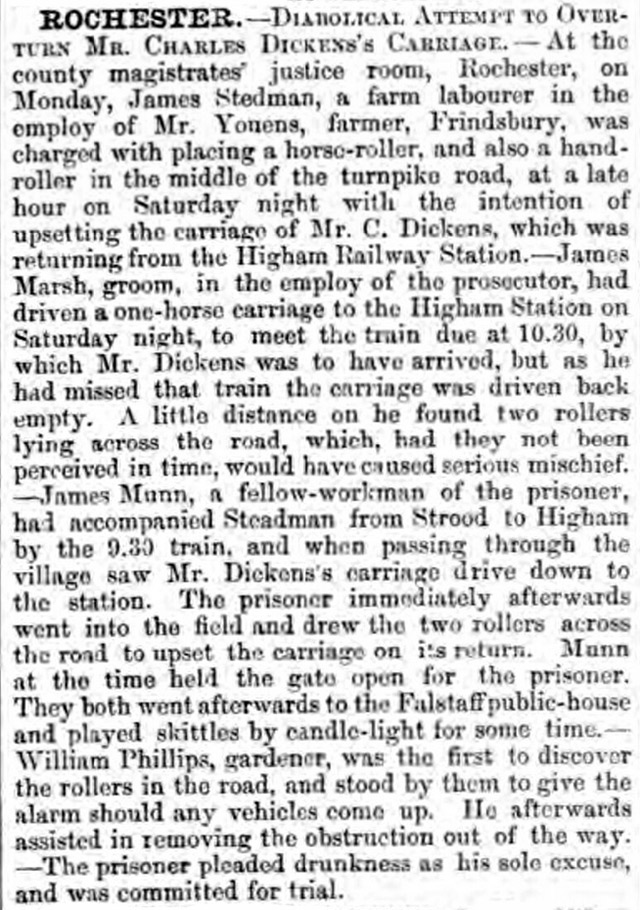
The villain of the piece was agricultural labourer James Stedman, who worked for local farmer Mr Youens. He appeared before Rochester magistrates ‘charged with placing a horse-roller, and also a hand roller in the middle of the turnpike road, at a late hour on Saturday night with the intention of upsetting the carriage of Mr C. Dickens, which was returning from the Higham Railway station’.
The author’s groom, James Marsh, had driven a one-horse carriage down the hill to Higham station the previous Saturday night to meet the 10.30pm train, by which Dickens was to have arrived. But as he had missed that train the carriage was driven back empty.
The newspaper reported: ‘A little distance on he found two rollers lying across the road, which, had they not been perceived in time, would have caused serious mischief. James Munn, a fellow workman of the prisoner, had accompanied Stedman from Strood to Higham by the 9.30 train, and when passing through the village saw Mr Dickens’s carriage drive down to the station.
‘The prisoner immediately afterwards went into a field and drew the two rollers across the road to upset the carriage on its return. Munn at the time held the gate open for the prisoner’.
Having committed this diabolical act, they went to play skittles by candlelight for some time at the Falstaff pub in Higham – which, as it happens, is directly over the road from Dickens’s home at Gad’s Hill Place.
Fortunately, a local gardener called William Phillips discovered the rollers in the road and ‘stood by them to give the alarm should any vehicles come up. He afterwards assisted in removing the obstruction out of the way’.
The prisoner pleaded drunkenness as his sole excuse and was committed for trial.
A lack of respect for the Victorian novelist?
The case was resolved the following month when the Maidstone Telegraph, on 12 July 1862, reported that James Stedman was indicted for having placed two horse rollers, or garden rollers, across the road in the parish of Higham, with intent to do grievous bodily harm to James Marsh, Dickens’s groom.
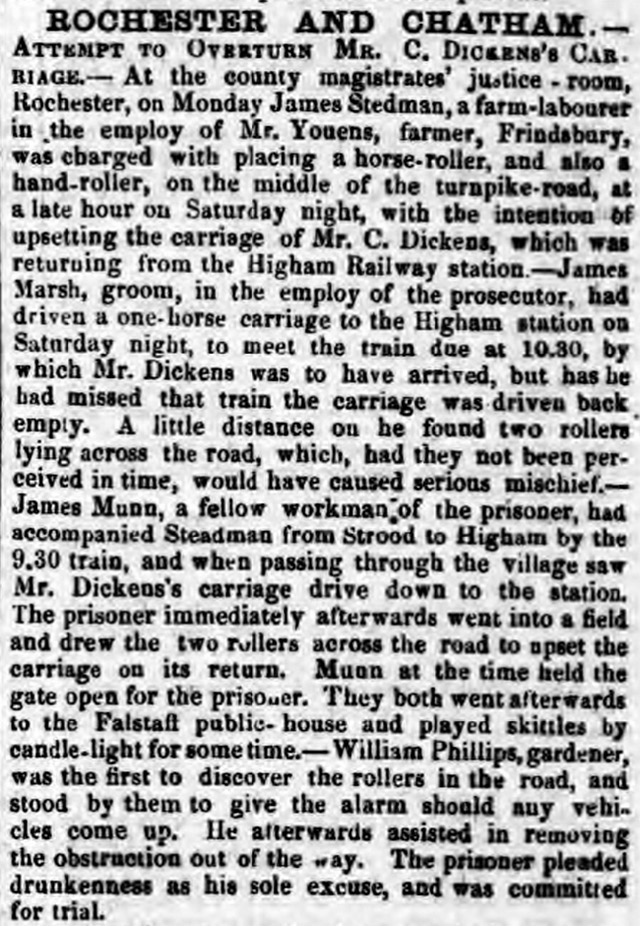
It is not reported if Stedman thought the author himself would have been the most likely victim of any accident caused by the obstacles. And it may be no surprise to hear, according to the court report, that he ‘was the worse for drink at the time’. Whatever his motive, he had to pay the price – and was sentenced to two months’ hard labour.
This apparent lack of respect for our most eminent Victorian novelist was echoed in another small but impudent crime also found in The British Newspaper Archive – a robbery at Charles Dickens’s home, reported by the Dover Express on 8 January 1859.
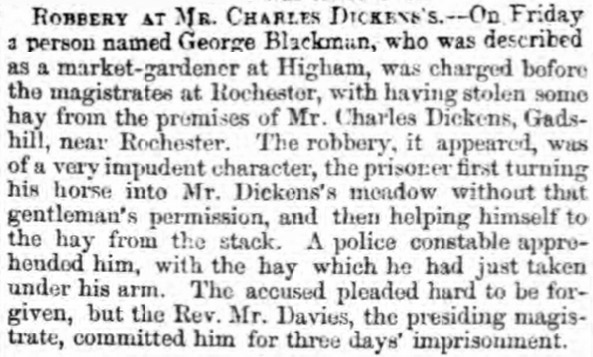
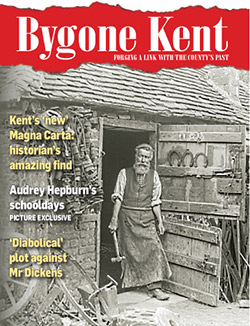 The newspaper recorded: ‘On Friday a person named George Blackman, who was described as a market gardener at Higham, was charged before the magistrates at Rochester with having stolen some hay from the premises of Mr Charles Dickens, Gad’s Hill near Rochester.
The newspaper recorded: ‘On Friday a person named George Blackman, who was described as a market gardener at Higham, was charged before the magistrates at Rochester with having stolen some hay from the premises of Mr Charles Dickens, Gad’s Hill near Rochester.
‘The robbery, it appeared, was of a very impudent character, the prisoner first turning his horse into Mr Dickens’s meadow without that gentleman’s permission, and then helping himself to the hay from the stack. A police constable apprehended him, with the hay which he had just taken under his arm’.
The accused pleaded hard to be forgiven, but his entreaties fell on the deaf ears of the Rev Mr Davies, the presiding magistrate – and he was sent to prison for three days.
Visit Bygone Kent’s website to find out more about the magazine and buy a subscription.


